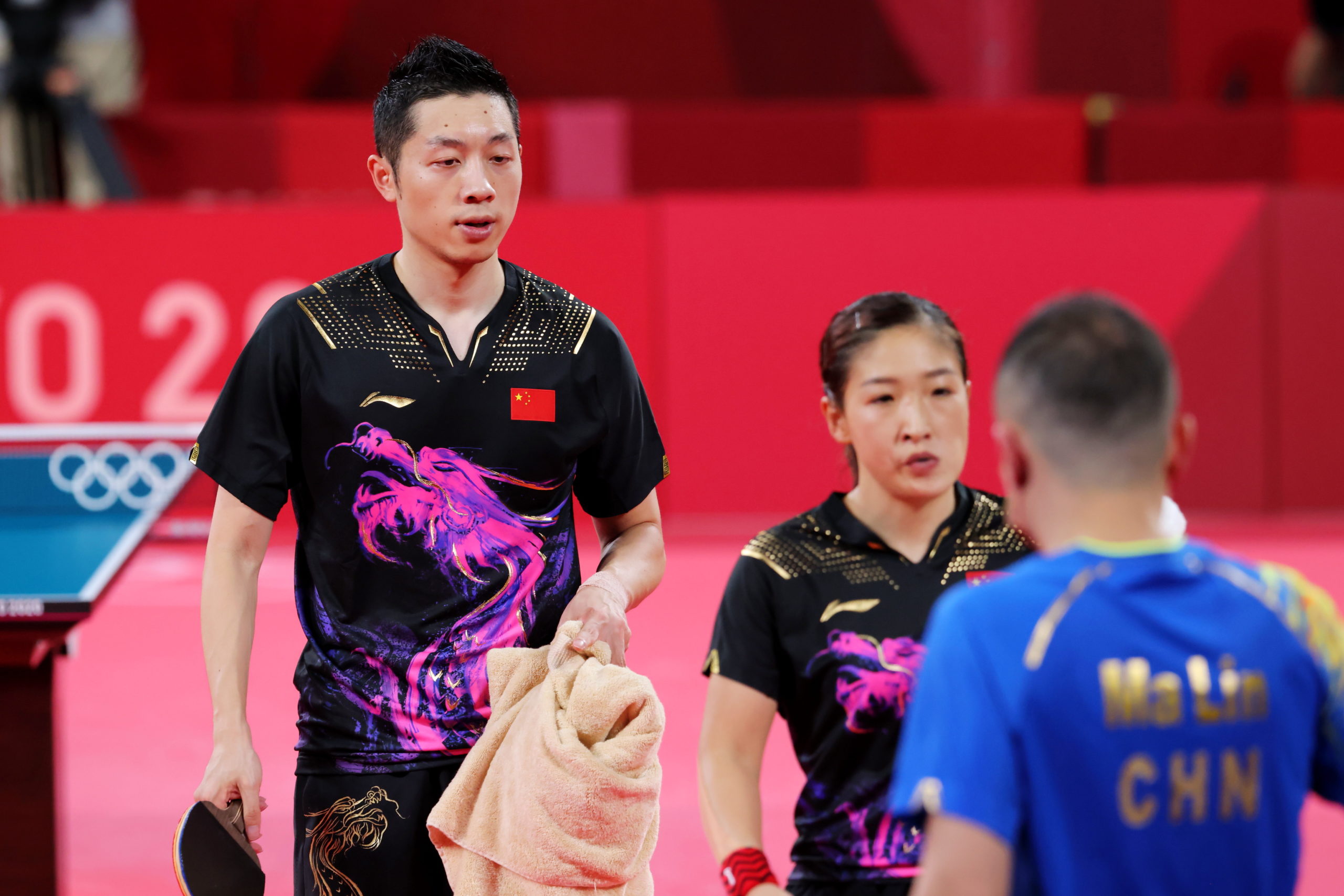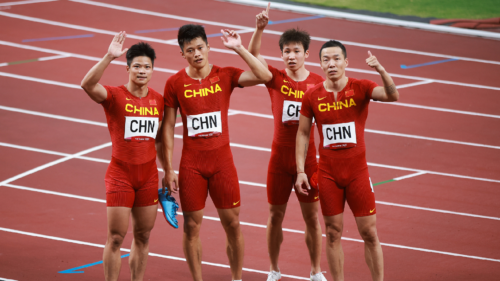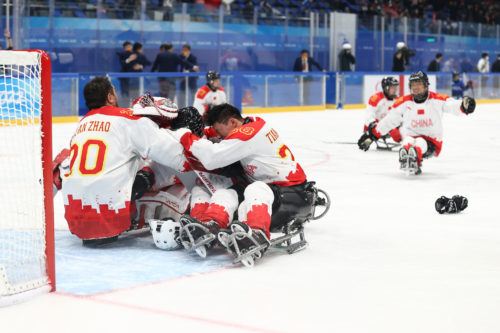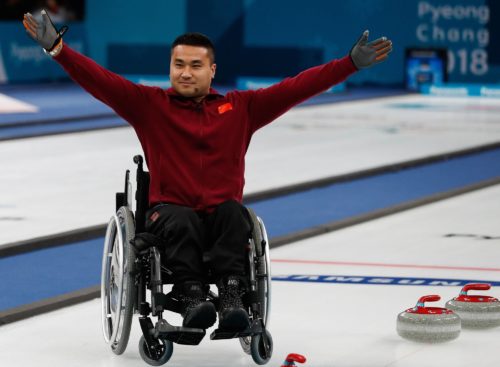Chinese social media reacts to shocking losses and historic wins at Tokyo Olympics
There are no Chinese (or any other fans) in the stadiums, but there is a very rowdy crowd watching the Olympics in China, and they’re letting the world know what they think on social media.

The Olympics are theoretically an apolitical celebration of the triumph of the human spirit and a showcase for athletic achievement. But the Games have always been suffused with nationalism and patriotism, leading George Orwell to describe them as a “war minus the shooting” that produces mainly “orgies of hatred.”
The 2020 Tokyo Games, which kicked off last Friday, has already proved to be a powerful catalyst for Olympic-inspired nationalism on Chinese social media, where certain events have gotten people talking, debating, and trolling.
Here is a roundup of some of the Olympic-related news that set the Chinese internet ablaze:
China loses to Japan in table tennis mixed doubles
For the first time since 2004, a country other than China has won gold at an Olympic table tennis event. On Monday, Japanese pair Jun Mizutani and Mima Ito ended China’s recent dominance in the sport by beating Xǔ Xīn 许昕 and Liú Shīwén 刘诗雯 4-3 for the mixed doubles title.
The defeat was hard to swallow for people in China, who take extreme pride in their national team’s excellence in table tennis. Adding to the bitterness of the result is the fact that the victory went to Japan, a country that Chinese people harbor deeply-rooted resentment towards due to the two counties’ tumultuous history.
So naturally, the stunning loss caused strong reactions on Weibo, where the main hashtag spawned by the game has so far generated nearly 1 billion views. The majority of the comments voiced disappointment over the outcome, with some internet users positing that perhaps this result could be a “good thing” for the national team — that it could serve as a “wake-up call” as Chinese athletes move forward in their quest for gold medals in table tennis.
“Regardless of the result, they fought hard. And because of that, they will always be champions in my heart,” a Weibo user wrote, while another one commented, “It’s time for Chinese table tennis players to realize that they can’t take wins for granted anymore. China’s traditional dominance in the sport is facing some serious threats.”
The game also raised anti-Japanese sentiment to a fever pitch on Chinese social media, with a number of commenters raising unsubstantiated claims of referees making unfair calls in favor of the Japanese athletes.
One casualty of this wave of hatred against Japan is Japanese actor Yuki Furukawa. On Monday morning, as the mixed doubles game took place, Furukawa asked his nearly 4.5 million followers on Weibo, “You watching the Olympics?” The backlash was swift, with thousands of Weibo users accusing him of boasting about the Japanese pair’s triumph at the expense of Chinese people’s feelings. In response, Furukawa deleted the question and apologized in a post. “I’m really sorry if I have offended you. Really didn’t mean for all this…I asked at the wrong timing. Should have been more careful of my words,” he wrote (in English).
Chinese shooter posts selfie after elimination, gets trolled by keyboard warriors
Over the weekend, Chinese shooter Wáng Lùyáo 王璐瑶, a 23-year-old athlete had hoped to stand on the podium at the Tokyo Olympics, was forced to delete a Weibo post amid trolling over her disqualification for the women’s 10-meter air rifle final.
“Sorry, everyone. What a shame. I admit I chickened out. See you in three years,” she wrote in the original post (in Chinese), which was accompanied by a selfie in the mirror.
Nationalist trolls wasted no time tearing Wang apart. Critics attacked her perceived blasé attitude towards losing, and compared her unfavorably to shooter Yáng Qiàn 杨倩, who also represented China and won the first gold medal of the Tokyo Olympics in women’s 10-meter air rifle.
At the same time, Yang — despite her victory — faced her own share of criticism over an old Weibo post in which she showed off her collection of Nike sneakers. While the post was made before the Xinjiang cotton dispute, where Nike, along with a slew of foreign brand like H&M and Adidas, calls for boycotts in China due to their concerns about alleged abuses in Xinjiang, Yang’s purchase of Nike products was still deemed “unpatriotic” by some Weibo users, whose trolling later prompted Yang to delete the controversial photos posted last year.
The negative comments faced by the two shooters were so overwhelming that Weibo issued a temporary posting ban on Sunday on 33 users. A string of top-level media also showed support for Wang, such as the People’s Daily, which asked internet users to stop putting too much pressure on Chinese athletes. “Train hard and love life is the best portrayal of athletes in the new era. Wang Luyao will achieve better results in the future,” it wrote (in Chinese).
Outrage over “unflattering” photo of Olympic gold weightlifter Hou Zhihui
Here’s a prime example of how Chinese diplomats’ aggressive use of Twitter plays well to patriotic audiences back home: On Saturday, the Chinese embassy in Sri Lanka took to Twitter to accuse the Reuters news agency of being disrespectful to Chinese athlete Hóu Zhìhuì 侯志慧, who won the gold medal in women’s 49-kg weightlifting at the Tokyo Olympics. The cause was a photo that Reuters used while reporting on Hou’s victory, which showed the 24-year-old weightlifter straining as she attempted to lift a barbell twice her weight.
“Among all the photos of the games, @Reuters has chosen this one, which only shows how ugly they are,” the embassy wrote. “Don’t put politics and ideologies above sports, and call yourself an unbiased media organisation. Shameless.”
In another tweet, the embassy lashed out at CNN for running a headline that put China’s Olympic performance and its unrelated COVID-19 situation alongside each other. “Gold for China…and more COVID-19 cases,” the headline reads.
While the embassy’s complaint about Reuters’s choice of image was largely deemed unwarranted on Twitter, it found an audience on Chinese social media. “They definitely did it on purpose! They selected this photo to imply that Chinese athletes are in pain.” a Weibo user remkared (in Chinese). However, some internet users pointed out that state-run China Daily had used a similar photo — before it replaced it and made a Weibo post (in Chinese) calling Reuters “shameless.”






